A non conducting piston of mass m and area of cross section A is placed on a non conducting cylinder as shown in figure. Temperature, spring constant, height of the piston are given by T,K,h respectively. Initially spring is relaxed and piston is at rest. Find
(a) Number of moles
(b) Work done by gas to displaced the piston by distance d when the gas is heated slowly.
(c ) Find the final temperature
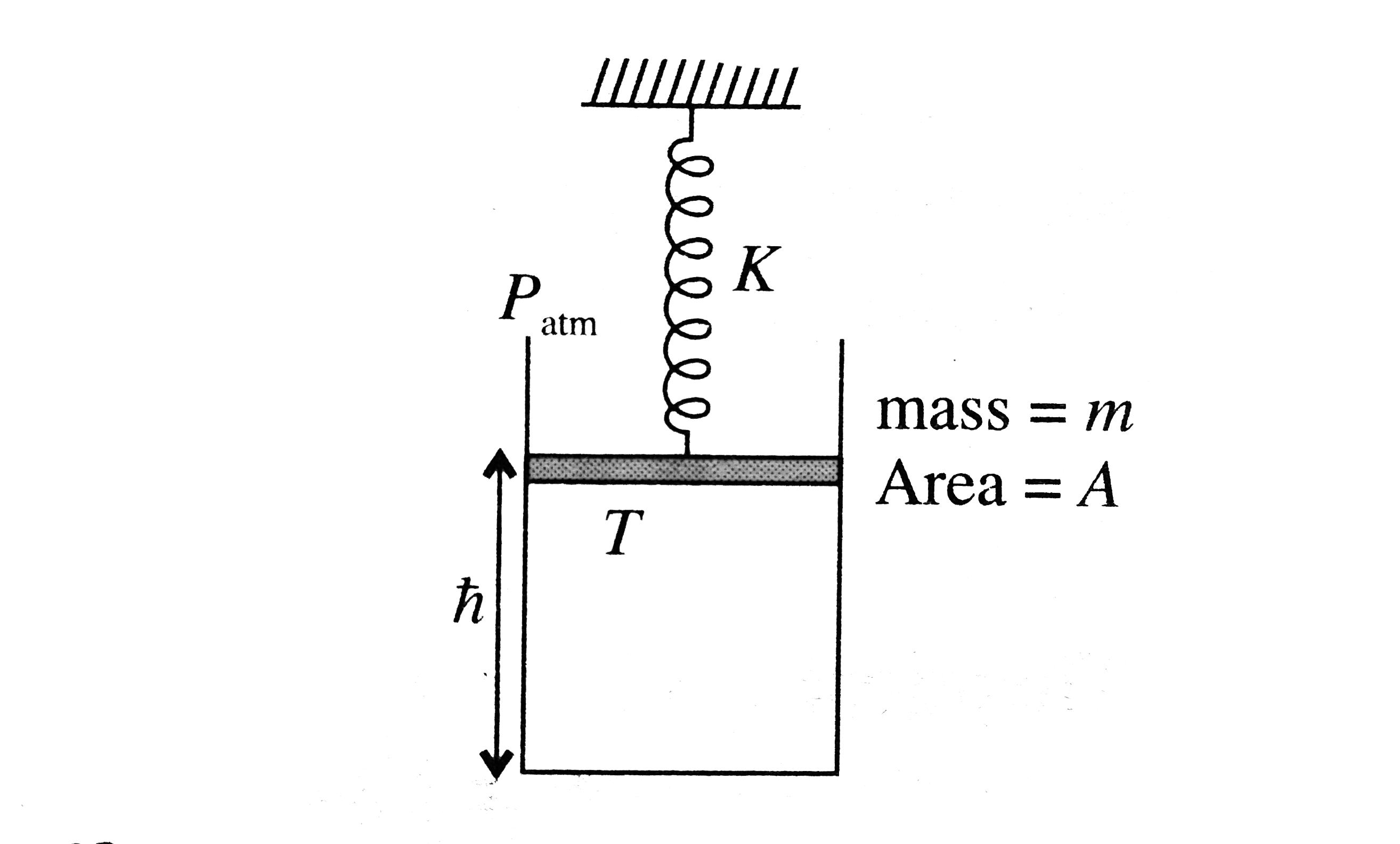
a. PV=nRT⇒(Patm+mgA)Ah=nRT
⇒n=(Patm+mgA)AhRT
b. 1st method : Applying newton's law on the piston
mg+PatmA+Kx=PgasA
Wgas=∫d0PgAdx=∫d0(mg+PatmA+Kx)dx
⇒Wgas=mgd+PatmdA+12Kd2
2nd method : Applying work energy theorem on the pistion
Wall=ΔKE
c. Since pistons moves slowly therefore ΔKE=0
Wgravity+Wgas+Watm+Wspring=0
−mgd+Wgas+(−PatmAd)+[−(12Kd2−0)]=0
⇒Wgas=mgd+PatmdA+12Kd2
Topper's Solved these Questions
- BOOK - CENGAGE PHYSICSCHAPTER - KINETIC THEORY OF GASES AND FIRST LAW OF THERMODYNAMICSEXERCISE - Solved Examples14videos
KINETIC THEORY OF GASES AND FIRST LAW OF THERMODYNAMICS
- BOOK - CENGAGE PHYSICSCHAPTER - KINETIC THEORY OF GASES AND FIRST LAW OF THERMODYNAMICSEXERCISE - Exercise 2.120videos
KINETIC THEORY OF GASES AND FIRST LAW OF THERMODYNAMICS
- BOOK - CENGAGE PHYSICSCHAPTER - KINETIC THEORY OF GASESEXERCISE - Compression2videos
KINETIC THEORY OF GASES
- BOOK - CENGAGE PHYSICSCHAPTER - LINEAR AND ANGULAR SIMPLE HARMONIC MOTIONEXERCISE - Multiple Correct Answer Type9videos
LINEAR AND ANGULAR SIMPLE HARMONIC MOTION
Similar Questions
A non conducting piston of mass m and area of cross section A is placed on a non conducting cylinder as shown in figure. Temperature, spring constant, height of the piston are given by T,K,h respectively. Initially spring is relaxed and piston is at rest. Find
(a) Number of moles
(b) Work done by gas to displaced the piston by distance d when the gas is heated slowly.
(c ) Find the final temperature
 View Solution
View SolutionMethod 3 of W
Mass of a piston shown in Fig. is m and area of cross-section is A. Initially spring is in its natural length. Find work done by the gas.
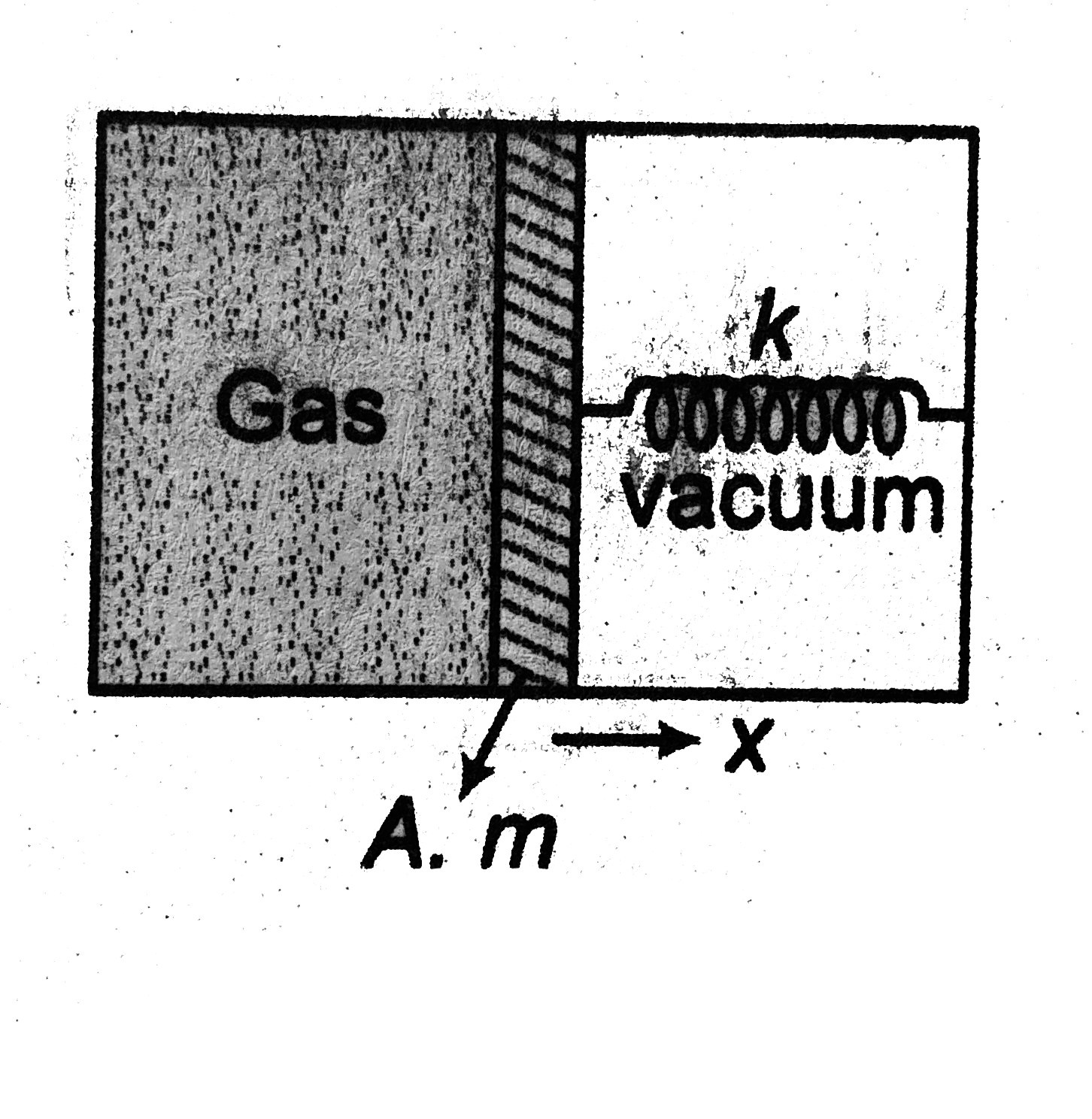 View Solution
View Solution
Knowledge Check
- Question 1 - Select One
A gas is filled in the cylinder shown in fig. The two pistons are joined by a string. If the gas is heated, the right piston will
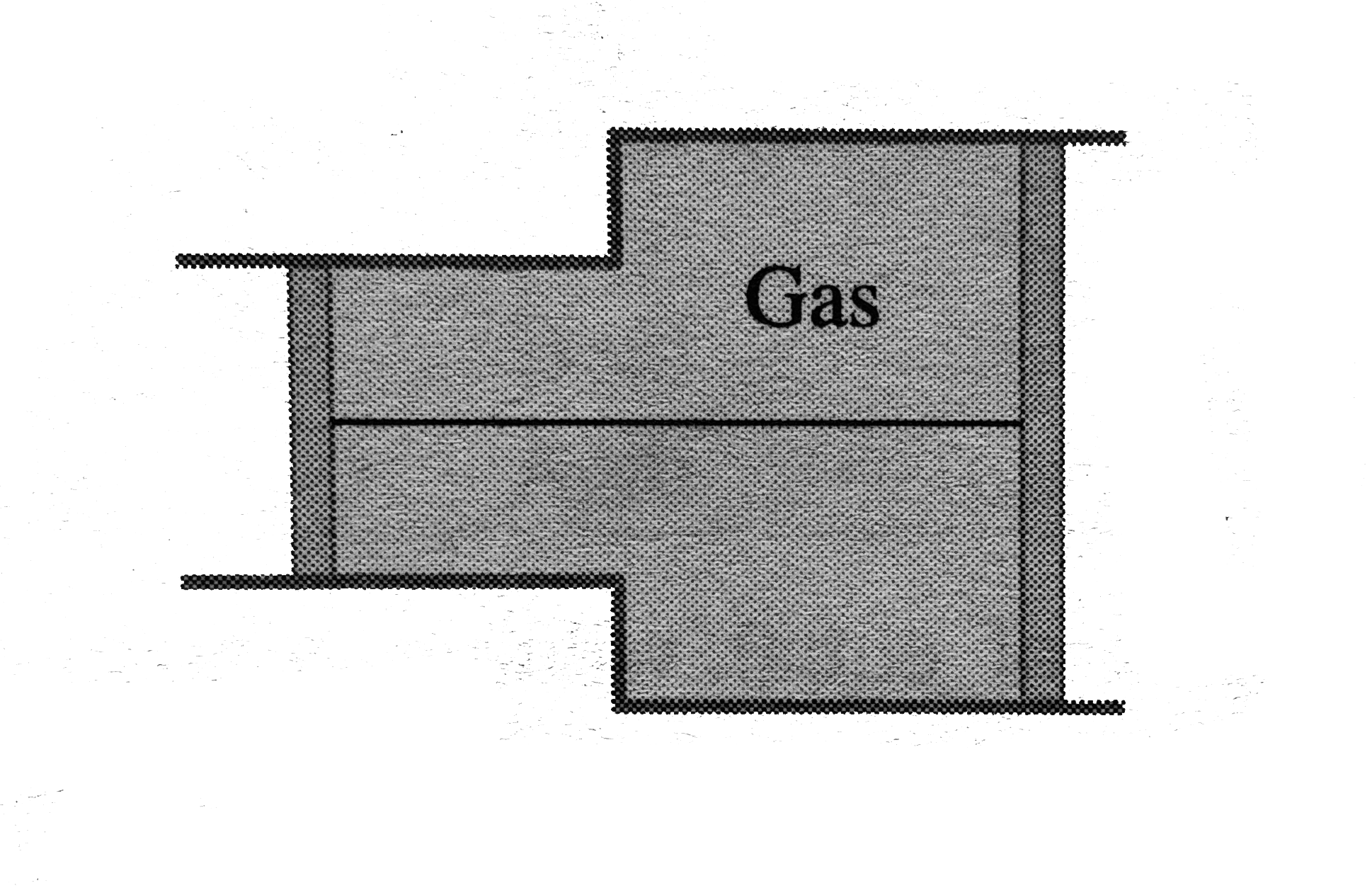 Amove toward leftBmove toward rightCremain stationaryDnone of these
Amove toward leftBmove toward rightCremain stationaryDnone of these - Question 2 - Select One
A non - conducting piston of mass m and are S0 divides a non - conducting, closed cylinder as shown in the figure. A piston having mass m is connected with the top wall of the cylinder by a spring of force constant k. The top part is evacuated and the bottom part is evacuated and the bottom part contains an ideal gas at a pressure P0 in the equilibrium position. Adiabatic exponent γ and in equilibrium length of each part is l. (neglect friction). Find the angular frequency for small oscillation.
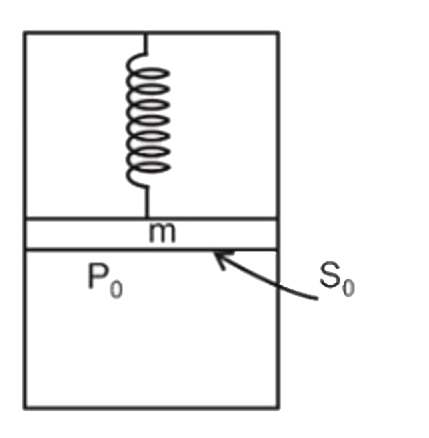 A√kl+γP0S02mlB√3kl+γP0S0mlC√kmD√kl+γP0S0ml
A√kl+γP0S02mlB√3kl+γP0S0mlC√kmD√kl+γP0S0ml - Question 3 - Select One or More
An ideal gas at NTP is enclosed in an adiabatic vertical cylinder havin an area of cross section A=27cm2 between two light movable pistons as shown in figure. Spring with force constant K=37−−N/m is in a relaxed state initially. Now the lower position is moved upwards a distance h/2, h being the initial length of gas column . It is observed that the upper piston moves up by a distance h/16. Final temperature of gas4/3×273K. Take γ for the gas to be 3/2.
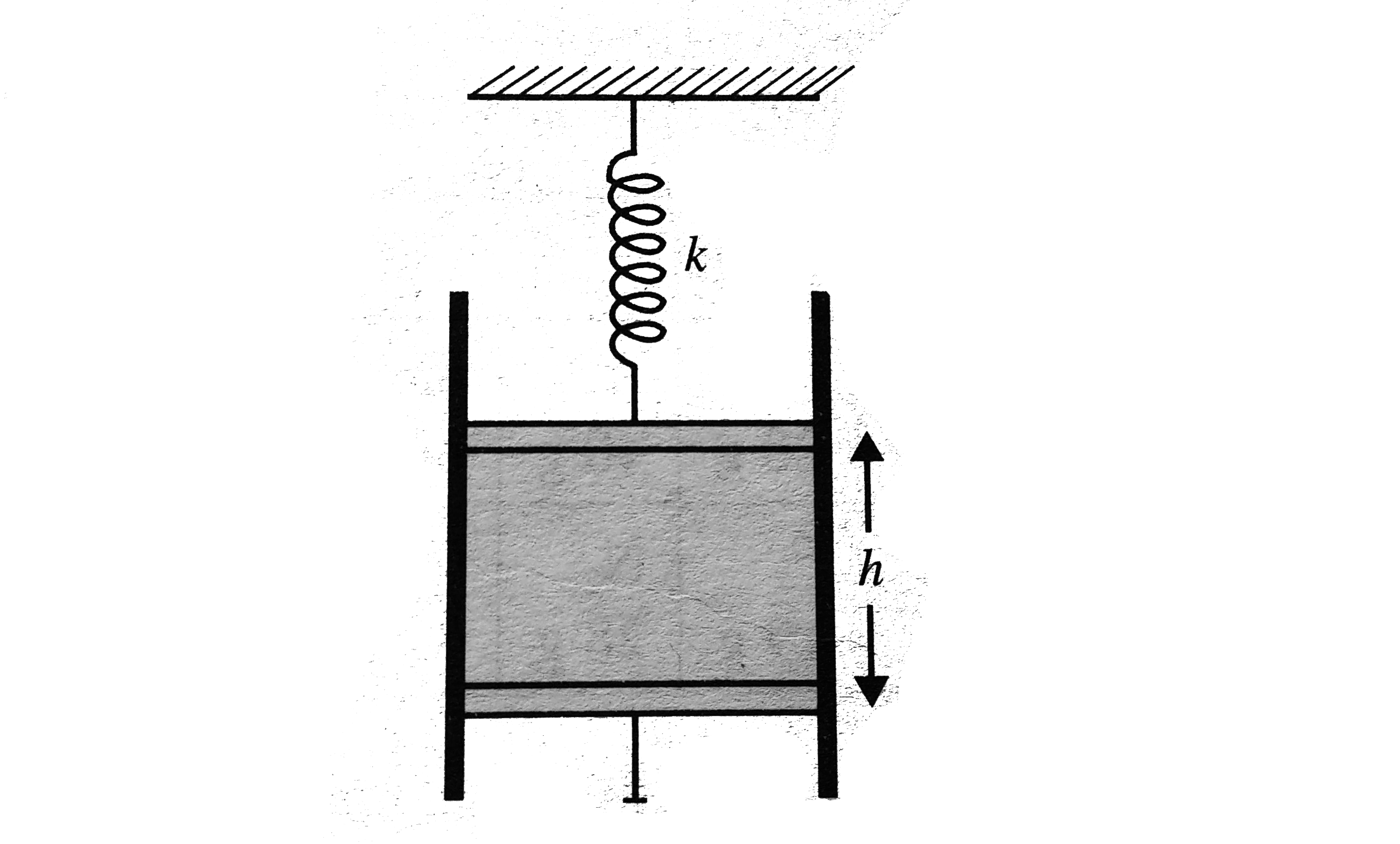
When the lower pistone is moved upwards a distance h/2, the compression.Aleads to coolingBtakes place isothermallyCtakes place adiabaticallyDleads to heating
2 moles of a diatomic gas are enclosed in a cylinder piston arrangment. The area of cross section and mass of the piston are 1cm2 and 1 kg respectively. A heater is supplying heat to the gas very slowly. Find heat supplied (in joule) by the heater is the piston moves through a distance of 10 cm.
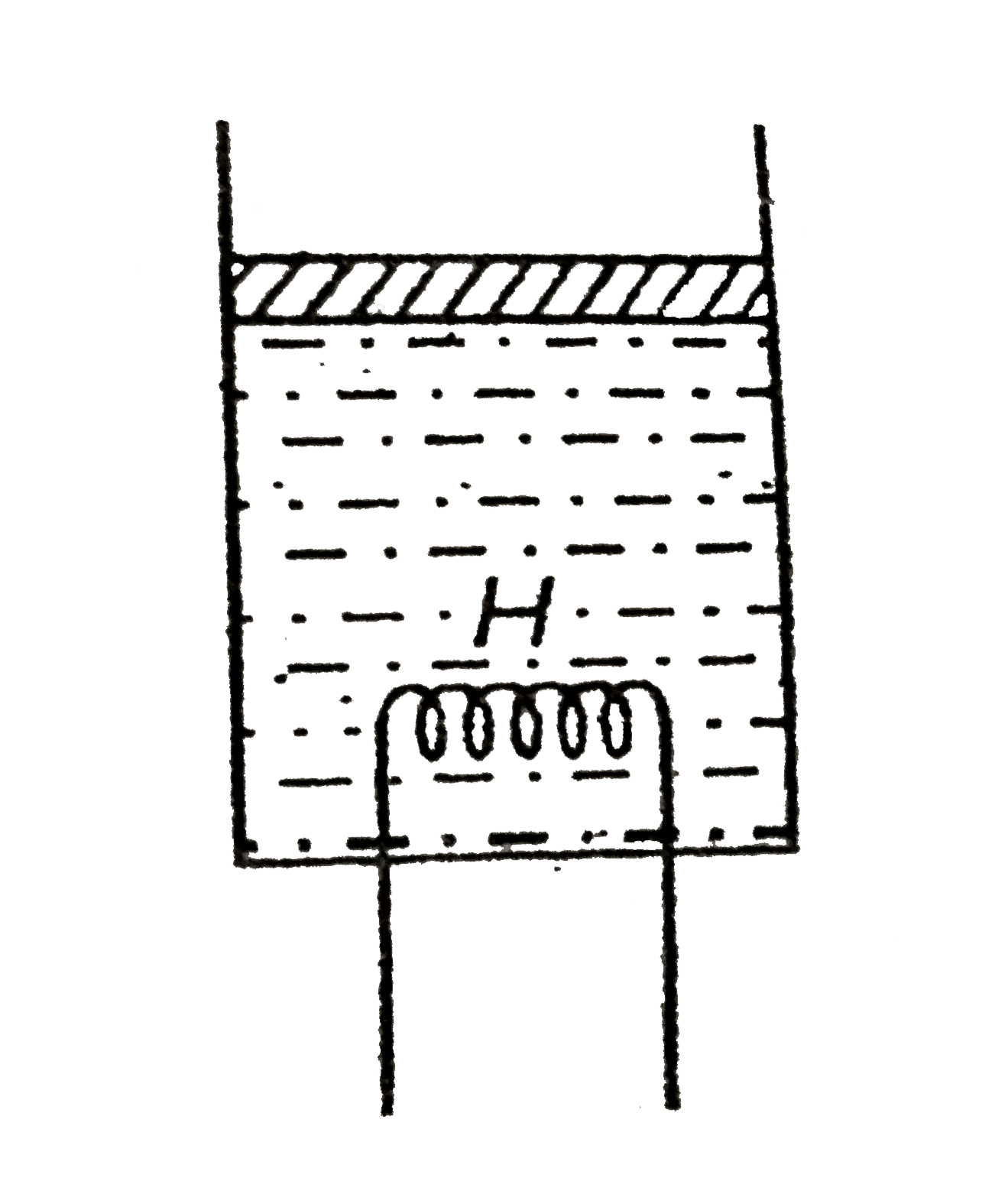 .View Solution
.View SolutionA smooth piston of mass m area of cross - section A is in equilibrium in a gas jar when the pressure of the gas is P0. Find the angular frequency of oscillation of the piston, assuming adiabatic Change of state of the gas.
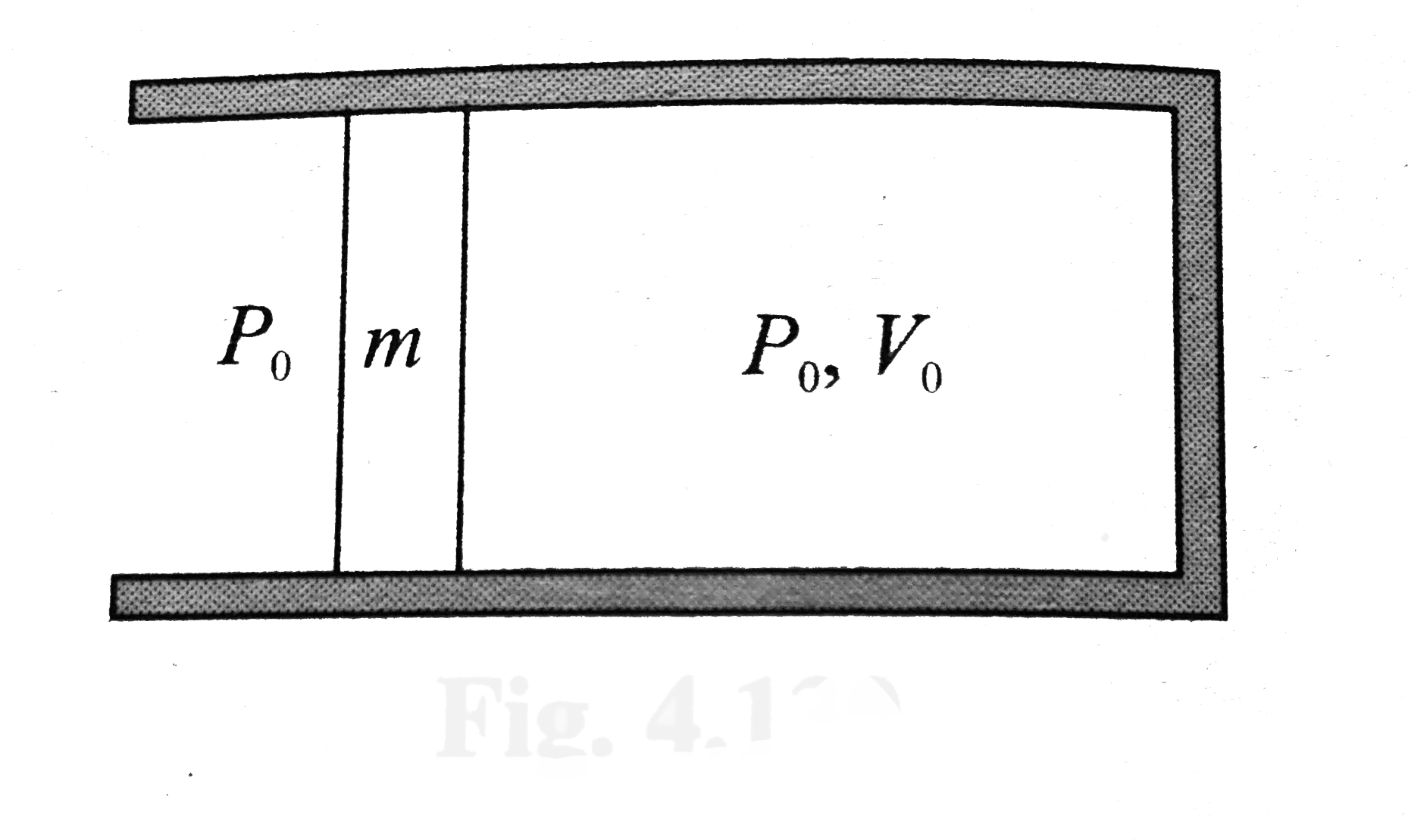 View Solution
View SolutionConsider a vertical tube open at both ends. The tube consistss of two parts, each of different cross sections and each part having a piston which can move smoothly in respective tubes. The two piston which can move smoothly in respective tube wire. The piston are joined together by an inextensible wire. The combined mass of the two piston is 5kgand area of cross section of the upper piston is 10cm2 greater than that of the lower piston. Amount of gas enclosed by the pistons is 1mol. When the gas is heated slowly, pistons move by 50cm. Find the rise in the temperature of the gas in the form X/RK, where R is universal gas constant. Use g=10m/s2 and outside pressure =105N/m2).
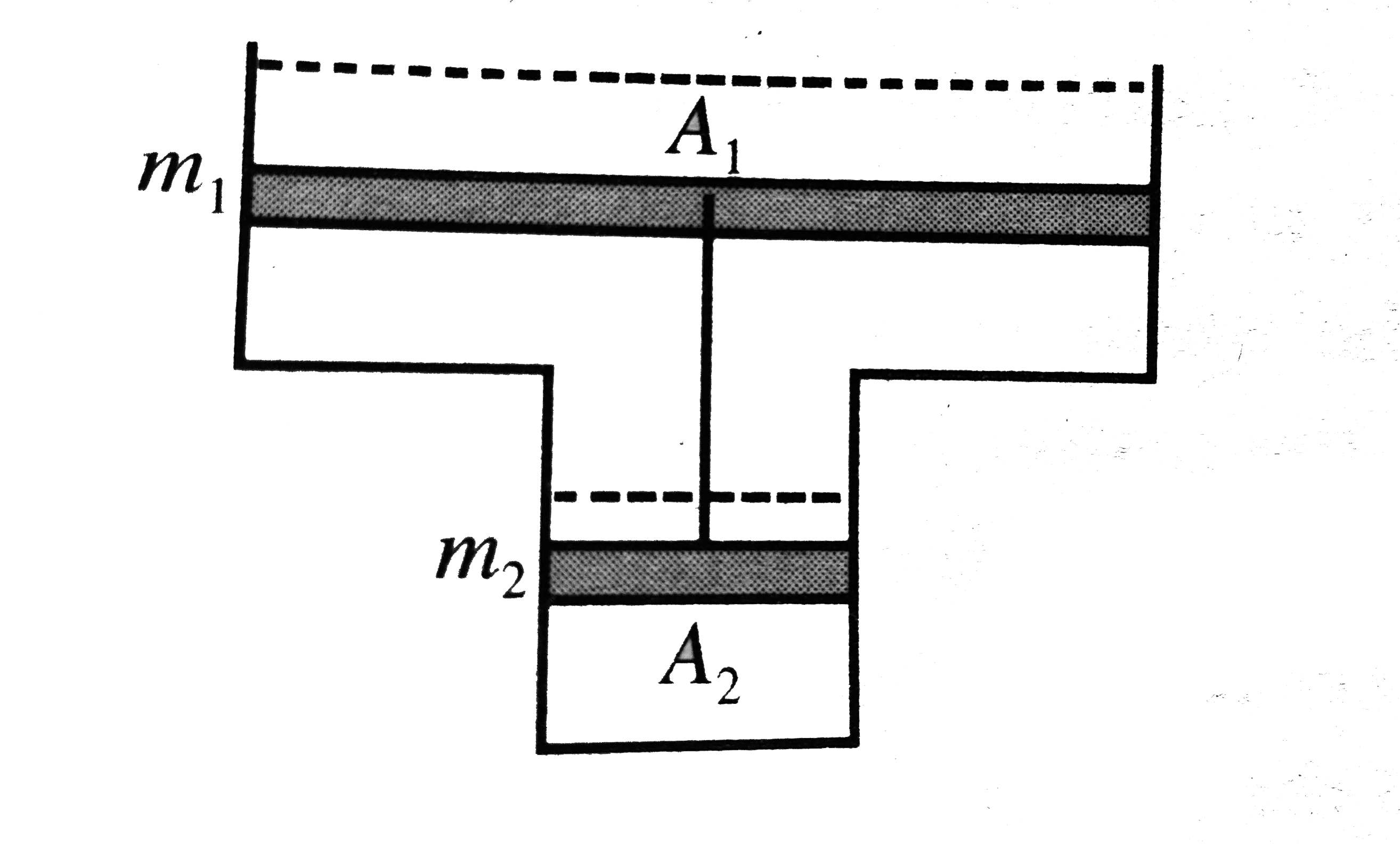 View Solution
View SolutionConsider a vertical tube open at bothh ends. The cube consists of two parts, each of different cross-sections and each parth having a piston which can move smoothly in respective tubes. The two pistons are joined together by an inextensible wire. The combined mass of the two piston is 5 kg and area of cross-section of the upper piston is 10cm2 greater than that of the lower piston. Amount of gas enclosed by the pistons is one mole. When the gas is heated slowly, pistons move by 50cm. Find rise in the temperature of the gas, in the form 25X/RK where R is universal gas constant. Use g=10m/s2 and outside pressure =105N/m2).
Fill value of X in the answer sheet.
 View Solution
View SolutionThe cylinder shown in the figure has conducting walls and temperature of the surrounding is T, the pistonj is initially in equilibrium, the cylinder contains n moles of a gas, Now the piston is displaced slowly by an external agent to make the volume double of the initial. Find work done by external agent in term of n, R, T
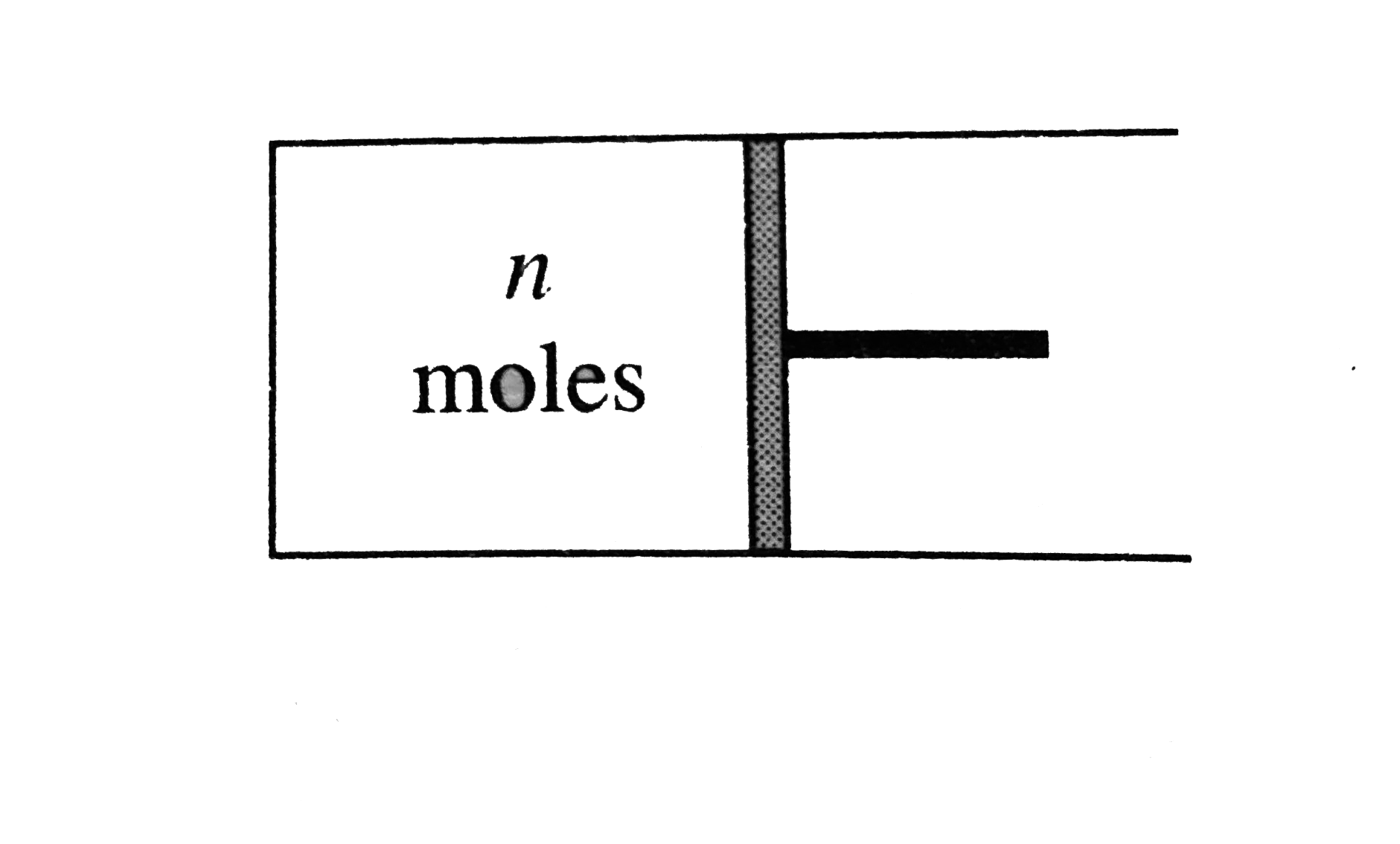 View Solution
View Solution

